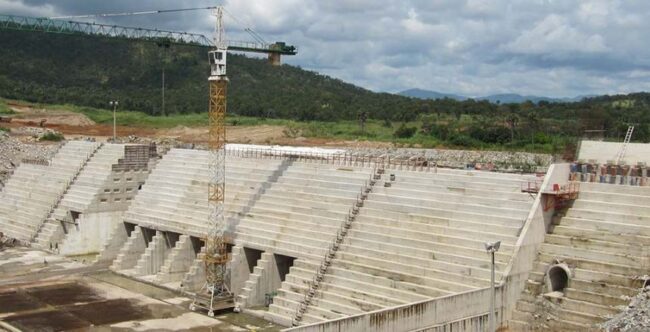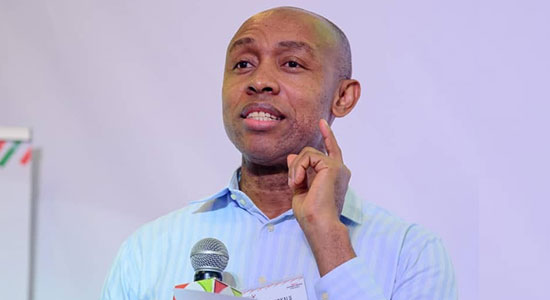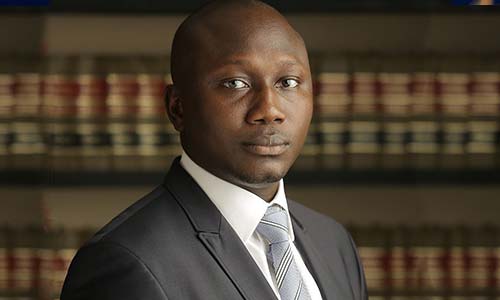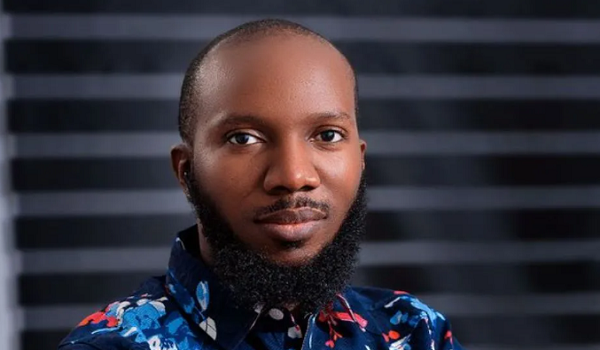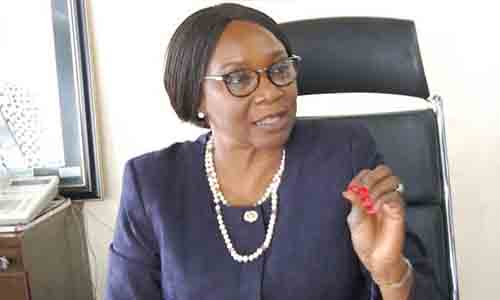On Wednesday, May 21, 2003, Dr Olu Agunloye, then minister of power and steel, presented a memo to the federal executive council (FEC). He sought its approval to award a build, operate and transfer (BOT) contract for the Mambilla Hydropower Project to Sunrise Power and Transmission Ltd, a company promoted by Chief Leno Adesanya. The project, conceived in 1972, has suffered several setbacks and limp attention in a country badly in need of electricity to power its economy. Mambilla was projected to generate 3,960 megawatts of electricity. For context, Nigeria’s current biggest hydro power plant has the capacity to generate only 800mw — and it was built in 1968.
According to a former minister who attended that FEC meeting, President Olusegun Obasanjo expressed surprise that despite discussing the Mambilla project extensively with Agunloye the previous day, the minister still brought the memo to council when he should have withdrawn it. Obasanjo reportedly said he spent considerable time explaining that proper work was needed in the power sector to avoid what befell the steel sector where government started so many projects that it could neither fund nor complete. If NEPA was a private business, he reportedly told FEC, it would have long been declared bankrupt. He pointed in the direction of a proper power reform framework.
Obasanjo, in his concluding remarks, reportedly said the project should be private sector-driven, asking the ministers to apply caution in negotiating government participation in all projects with investors because of the financial and legal implications for the country. After his intervention, Vice-President Atiku Abubakar added his voice, suggesting that other options should be explored by the ministry for the Mambilla project, including possible zero participation by the government so that it could be entirely private sector-driven. At the end of deliberations, FEC failed to approve Agunloye’s memo, asked him to withdraw it, and said that the development should be revisited in the future.
Lo and behold, the following day, May 22, Agunloye picked his pen and wrote to Sunrise, saying he was “pleased” to convey the “approval” of the Nigerian government for the award of the contract at a “provisional sum of $6 billion”. This was one week to his exit from office. Pronto, Sunrise replied on May 26 to accept the “offer”. Nevertheless, Obasanjo did not recognise the “contract” during his second term. When Sunrise wrote to the ministry in August 2003 asking for payment for “pre-EPC” development, Senator Liyel Imoke, the new minister, wrote back to say there was no approval to engage Sunrise. He said a bidding process would soon open and advised Sunrise to tender.
Someone could argue that the lack of FEC approval was a housekeeping matter and not Sunrise’s headache. After all, Agunloye was a minister and he wrote on behalf of Nigeria. However, in his letter, Agunloye said the contract “is subject” to five pre-conditions: one, negotiations on the duration, which he put at “30 or 40 years”; two, tariff should be agreed with the Nigerian Electricity Regulatory Commission (NERC); three, the equity participation of the government should be between 0% and 10%; four, the initial capital outlay should be accurately determined by all parties; five, a special purpose vehicle should be incorporated if government participation was agreed at 0%.
This is where it gets more interesting: there is no record that the discussions between federal government and Sunrise as stipulated in Aguloye’s letter ever took place. Therefore, at best, Agunloye’s “award” was inchoate — like a TV without power — since the pre-conditions to activate the contract were unmet. More so, there was not a single reference to Sunrise in all official discussions around Mambilla after Agunloye’s letter. In fact, on January 10, 2007, Alhaji Ahmed Abdulhamid, then minister of state for energy, sent a comprehensive memo to FEC on Mambilla. There was no mention of Sunrise, understandably since there was no FEC approval in the first place.
Insisting that it already had a contract in place, Sunrise headed to court in June 2007 following the award of the civil works and hydraulic steel structure contract to the CGGC-CGC Joint Venture by the federal government. It claimed $960 million for alleged breach of contract. Chief Michael Aondoakaa came in as attorney-general in June 2007. He tried to get Sunrise back on board, claiming that President Umaru Musa Yar’Adua was “angry” that the Agunloye contract was not “respected”. The CGGC-CGC contract was eventually revoked by Yar’Adua in 2009. The project stalled until President Goodluck Jonathan, who assumed power in 2010, tried to get the project back on track in 2012.
Attempts to settle out of court with Sunrise failed. The court refused to enter the terms of settlement and threw out Sunrise’s application. Things kept going to and fro until President Muhammadu Buhari, who came to office in 2015, decided to revive the project. In November 2017, Sunrise headed for arbitration at the International Chamber of Commerce (ICC) in France after the turnkey contract was awarded to the CGGC/CGCOC/Sinohydro JV following a memo from Mr Babatunde Fashola, then minister of power. Sunrise’s claims posed a serious legal challenge to the JV (which was to be financed 85 percent by the China Ex-Im Bank), effectively stalling the project again.
In arbitration, Sunrise is asking for a compensation of $2.3 billion, claiming it had spent “millions of dollars” between 2003 and 2009 on financial and legal consultants. In a second arbitration, Sunrise is asking for a $400 million settlement being the terms of the agreement it entered with the federal government in 2020 to end the legal challenge. There are other little details. The declared total assets of Sunrise in its CAC filing is N1 million (about $2,000), with zero turnover. It has never executed a power project before, apart from maybe buying a standby generator for its office in Victoria Island, Lagos. Yet it got a $6 billion “contract” from the government of Nigeria!
The moment Mr Abubakar Malami, Buhari’s AGF, entered the fray, things were never going to be the same again. In fairness to him, he seemed to have felt genuinely misled in his first legal opinion dated July 24, 2017 which he sent to Prof Yemi Osinbajo, then acting president. Malami had said Sunrise should be engaged as a “local content partner” as a means of “accommodating its prior contractual interests on the project”. But in another letter dated August 17, 2017, Malami backtracked, saying this opinion was based on the limited materials he had. He said he had now realised there was no FEC approval for the so-called contract that was awarded by Agunloye in 2003.
Sunrise is arguing that there was no requirement for FEC approval, which could well be legally correct, but why on earth did Agunloye convey a withdrawal as an approval? How did a company with $2,000 assets get a $6 billion contract? How did a company that has never done a power project get a contract to build a 3,960mw plant? These are the questions Agunloye has to answer as we struggle to get out of this mess. Sunrise can continue to wave Agunloye’s piece of paper in our face but the people of Nigeria deserve to know what went down in 2003 that has brought us into this sorry pass. It is so tragic that there is hardly anything government officials do that can pass the smell test.
As I was saying, Malami, being Malami, kept changing his mind and was soon predictably involved in a curious “settlement agreement” to “pay off” Sunrise in March 2020. Working hand-in-glove with Mallam Saleh Mamman, then minister of power, they committed the federal government to paying $200 million to Sunrise “within 14 days”, failing which Nigeria would pay another $200 million fine, making it $400 million in total. We also inserted a clause that if we failed to pay the $400 million, Sunrise should take Nigeria back to the ICC. More curiously, we even agreed that the arbitration should be fast-tracked, although the upper threshold for expedition is for a $3 million claim.
In effect, Malami and Mamman (M&M, for short) loaded a gun — or were handed a loaded gun — to point to their own heads. Actually, it is not their own heads. It is the heads of Nigerians. M&M would not suffer personal consequences. It is Nigerians, you and I, that will pay the price, not M&M. Buhari, who wanted the Mambilla to be his legacy, abruptly replied Malami’s request for $200 million in April 2020 with a simple “FG does not have USD 200 million to pay SPTCL”. With no $200 million or $400 million forthcoming, Sunrise quietly withdrew the second arbitration “without prejudice”. I understand the company is now preparing a P&ID-like assault on Nigeria. God save us.
But why is Nigeria like this? The Paris Club noose comes to mind. In 2006, Nigeria paid $12 billion to the Paris Club of Creditors to get $18 billion debt written off. Because the money was taken from the central purse, states and councils that did not owe Paris Club, or did not owe that much, demanded a refund. If not that Nigeria is full of scammers, the calculation for refund could easily have been done by FAAC. Microsoft Excel would help. But is it not Nigeria? Consultants were curiously engaged to do the calculation in exchange for a cool $418 million as commission. The great Malami has done another “settlement agreement” and is hell-bent on paying them despite a pending legal challenge.
My heart bleeds for Nigeria. While I refuse to give up on this beautiful, beautiful country, I cannot blame those who have thrown in the towel. It is glaring that many people in authority do not have the interest of this country at heart. Who is really interested in our progress? There are so many cases similar to Mambilla and Paris Club hanging on our neck across the world, some dating back to decades. It is a major industry and it is booming perversely. Meanwhile, I am still trying to understand how the accountant-general allegedly carried out a N109 billion heist while we were busy borrowing to service our debts. Pray, who will love this country? Depressing.
AND FOUR OTHER THINGS…
NO AGREEMENT
I was jumping up and down for joy on Monday when the Academic Staff Union of Universities (ASUU) announced that it was about to call off its perennial strike. It said all that was left was an agreement to be signed with the government, chief of which was the adoption of UTAS instead of IPPIS as the payment platform for its members. Unfortunately, I rejoiced too early. The talks collapsed and the strike continues. In truth, I do not expect university teachers to ever do away with strike — it is the language they love to speak for over 40 years. I am just hoping for some relief, no matter how temporary. This strike is ruining a whole of generation of students. Catastrophic.
SHOCKING STUNT
Unionism can be a force for good. It can also be a weapon of emotional blackmail. It can even lead to outright stupidity. The action of federal electricity workers, who switched off the grid on Wednesday and plunged the nation into darkness, is sickening. They said they were protesting the directive that they should write a promotion test. When electricity workers went on strike and switched off the national grid under military rule in the 1980s, their leaders were sentenced to death for economic sabotage. It was later commuted to life imprisonment. That was definitely harsh, but where do we draw the line between legitimate agitation and absolute rascality as we just witnessed? Childish.
ATIKU AND WIKE
Rather than prepare to wrest power from the All Progressives Congress (APC) in 2023, the Peoples Democratic Party (PDP) is dissipating much of its energy on the “civil war” between Alhaji Atiku Abubakar, its presidential candidate, and Chief Nyesom Wike, the governor of Rivers state, whom Atiku defeated in the primaries. Given the delicate state of things, I don’t think Atiku should have suggested that he did not pick Wike as his running mate because they would not work “amicably”. For all you care, Wike has nothing to lose. PDP is already battling with losing a chunk of its traditional votes to Peter Obi and Rabiu Musa Kwankwaso, both of whom defected from the party. Perilous.
FRYING EMIRATES
Emirates Airlines, the national carrier of the United Arab Emirates (UAE), has again suspended its flights to Nigeria effective September 1, 2022. This time, it said it is because of its inability to repatriate its income from Nigeria as a result of forex scarcity. The airline has about $85 million stuck here. Although this is a very bad signal for us, it also seems there is something going on between the Nigerian and UAE authorities it has been a game of cat and mouse in the last two years. I have lost count of flight and visa suspensions. Other airlines are also unable to repatriate their earnings but are still flying, so there is something we are not being told by Nigerian and UAE officials. Fishy.

